St Hugh’s graduate student leads expedition to Príncipe, off the coast of equatorial West Africa.
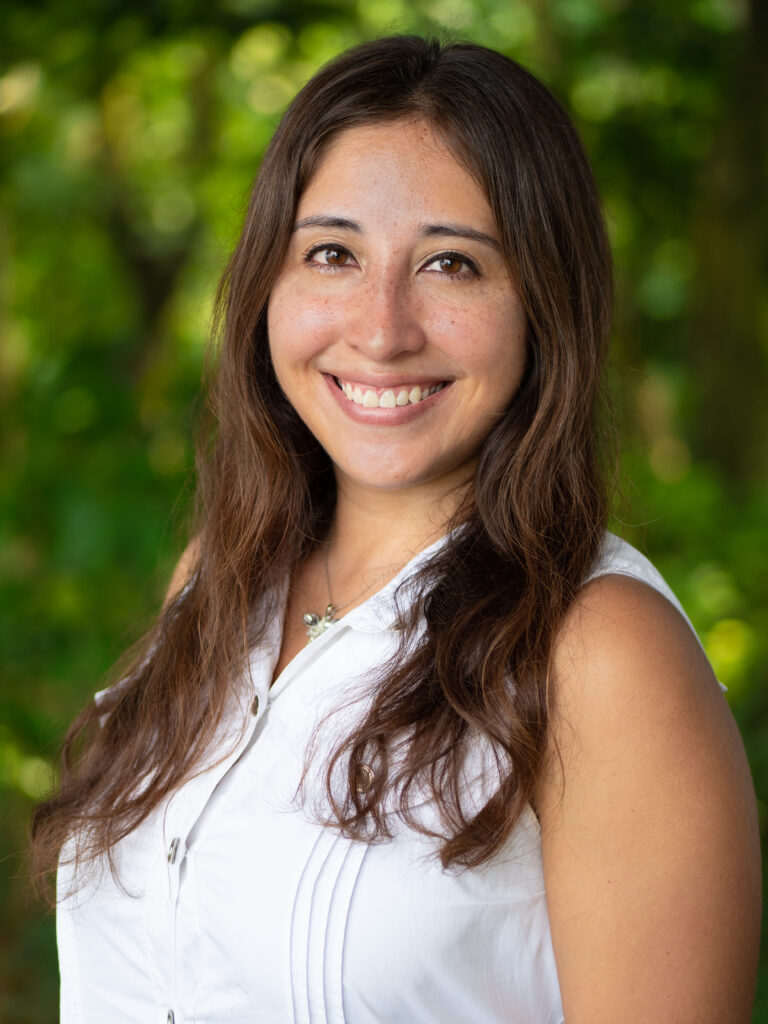
Earlier this year, Carla Verónica Fuenteslópez (DPhil Engineering Science) led the University of Oxford Príncipe Expedition 2023: Exploring Deep-Time Environmental History, Biodiversity & Oral Histories. Principe is part of the two-island state of São Tomé and Príncipe off the coast of equatorial West Africa.
Carla has written about the expedition below:
São Tomé & Príncipe (STP) have never been connected to mainland Africa, and their relative isolation have allowed the evolution of endemic species – species that are found nowhere else – much like on the Galapagos islands, which were the basis of Darwin’s Theory of Evolution. Despite their rich and unique biodiversity, São Tomé & Príncipe remain relatively understudied – especially the smaller island of Príncipe. Key knowledge gaps remain about the effect of early human settlement and activity on the islands on its native biodiversity.
STP poses an interesting case study for our research, as the islands are thought to have been uninhabited until relatively recently. Human settlement on the islands likely only started in the late 15th century, when the islands were discovered by the Portuguese. It is understood that human arrival on islands can significantly change ecosystems. Although it is known that a large part of the vegetation and agricultural crops grown extensively on Príncipe were brought from other parts of the world, there is no quantitative information on the island’s vegetation before its human colonisation. We therefore do not know how human-mediated species introductions have changed these earlier ecosystems. By reconstructing ecosystems of the past, we may be able to find out how human colonisation and settlement influenced biodiversity throughout time and provide lessons relevant for contemporary environmental management.
To answer these questions, we collected sediment cores from open water bodies on Príncipe. To collect these, we stand on a raft – so as to not disturb the sediment below us – and carefully lower a sediment corer into the water. Now that our fieldwork period is complete, we will analyse these sediment core samples. Amongst others, we will be checking the presence of pollen which can tell us something about the plant species present at different points in time. Combined with botanical surveys, these will allow us to build a picture of the state of the environment throughout time by studying changes in vegetation.
We also interviewed local people to understand environmental stewardship practices and empirical environmental knowledge, as well as oral histories. These interviews will form the input for a short documentary which aims to amplify local voices.
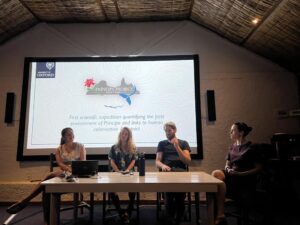
Team giving a talk about the expedition at Forever Príncipe´s headquarters
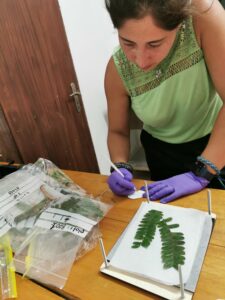
Carla processing botanical samples
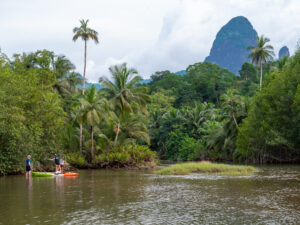
Sediment coring at a lagoa on the West coast of the island
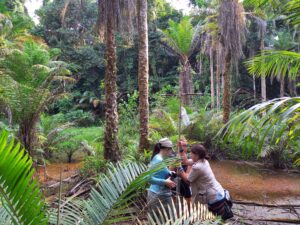
Pushing the corer into one of the three non-coastal lagoas of Príncipe
